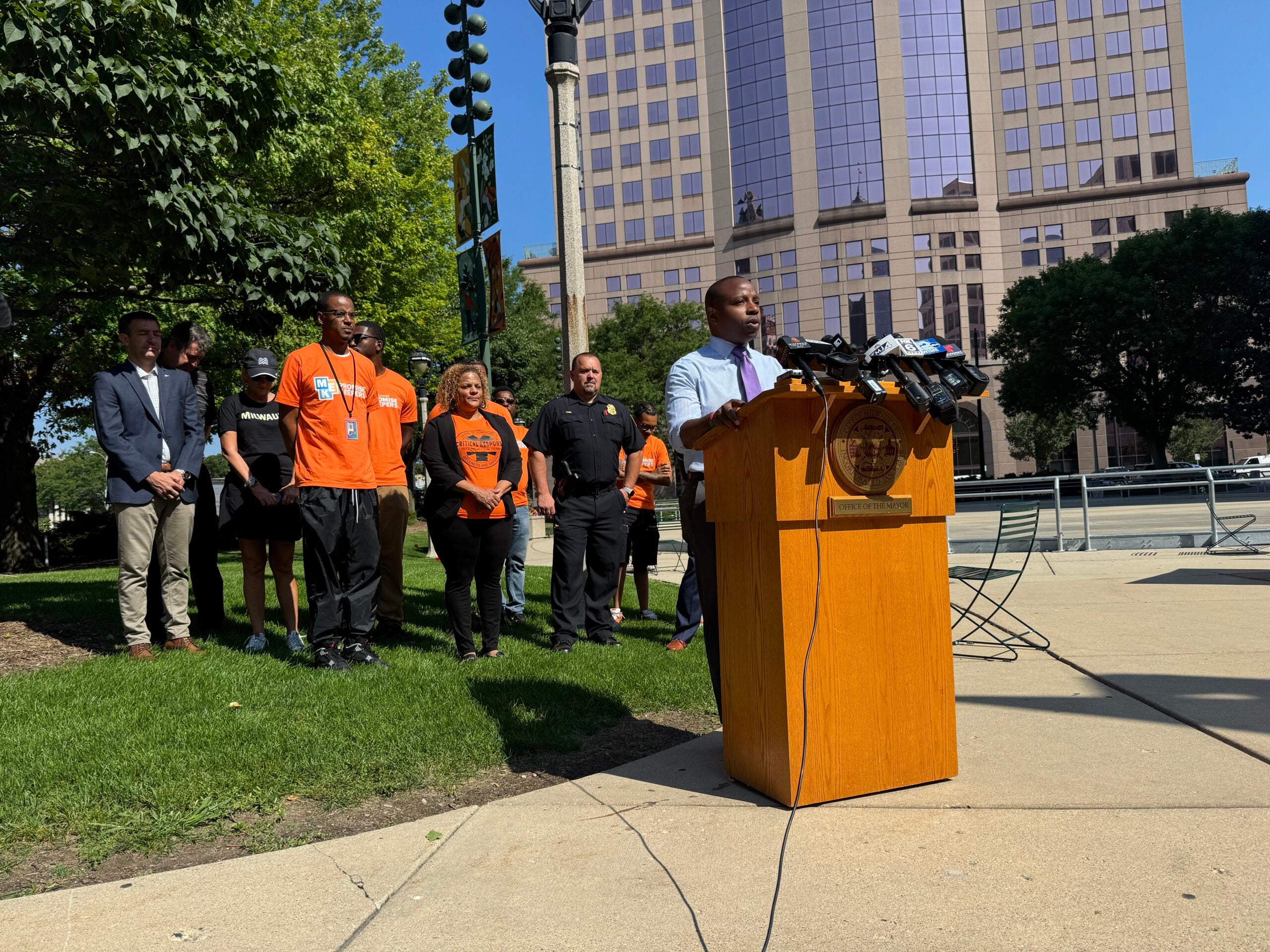The city of Madison has agreed to pay $2.3 million to the family of a man fatally shot by a city police officer in 2012.
Officer Stephen Heimsness shot 30-year-old Paul Heenan on an early November morning after being called to investigate a possible break in. Heenan was drunk at the time and scuffled with the officer. Heimsness claimed he shot him because he thought he was trying to take his gun away.
Heimsness resigned from the police department in 2013. Heenan’s family filed a federal lawsuit that same year alleging Heimsness used excessive force and the department failed to properly supervise and fully investigate multiple complaints against him.
News with a little more humanity
WPR’s “Wisconsin Today” newsletter keeps you connected to the state you love without feeling overwhelmed. No paywall. No agenda. No corporate filter.
Heenan’s roommate and friend Amelia Royko Maurer said she hopes the settlement will lead to changes in the way officers are trained in the use deadly force.
“The death of Paulie Heenan and this settlement suggest an admission to systemic failure,” said Maurer.
Heenan’s family say they will use the settlement money to promote the ongoing national conversation about the police use of force. Officer Heimsness was also named in the lawsuit but is covered by the city’s insurance policy and therefore not liable for paying into the settlement.
The family’s attorney, Michael Fox, said that because Heenan was white, the story of his death is different from most of the police shootings that have grabbed the nation’s attention over the past few years. He said that’s why the family believes it’s important to broadcast more widely the events that led to his death.
“There is suggestion as part of the narrative of this case that the problem exists beyond just the interrelationship between police forces and minority communities. It goes to the heart of the attitude with regard to the use of lethal force in all communities,” said Fox.
According to Fox, city admits no liability in the settlement, which is not unusual in cases like this.
Deputy City Attorney Patricia Lauten said Heimsness followed protocol but the city was concerned the lawsuit could drag on for years and become more expensive.
Editor’s note: This article was originally an Associated Press story. It has since been updated with reporting by Wisconsin Public Radio.
Wisconsin Public Radio, © Copyright 2025, Board of Regents of the University of Wisconsin System and Wisconsin Educational Communications Board.






